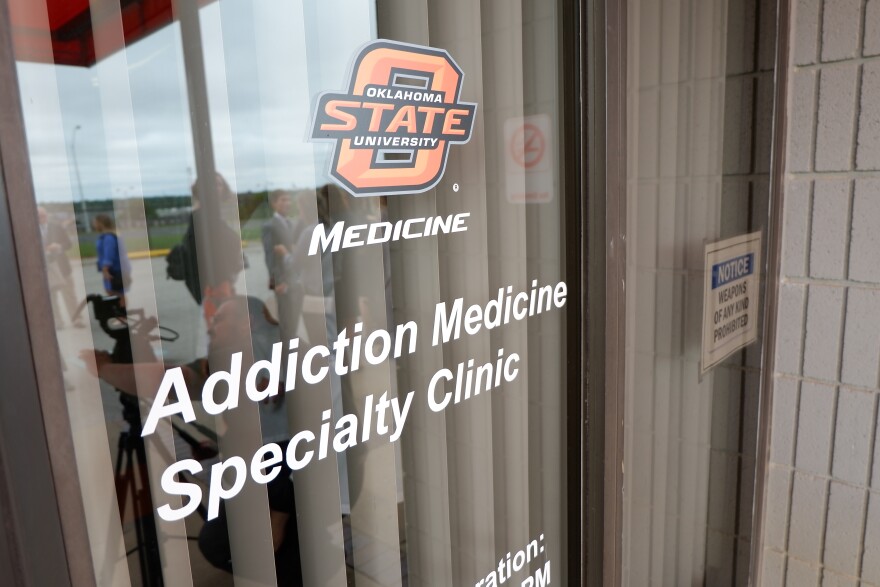A new OSU Medicine clinic in Tulsa will focus on treating substance abuse disorders, especially addiction to prescription painkillers.
The OSU Addiction Medicine Clinic is located at treatment center 12 & 12 and is affiliated with the addiction treatment leader the Hazelden Betty Ford Foundation.
Around one in 10 Oklahomans struggles with addiction, but only about one in three seeking treatment are able to get it. The clinic will offer individualized treatment for substance abuse disorder, including medication-assisted treatment.
"Treatment for people who are struggling with opioid dependence, where those opioids have really locked onto the brain, and medication-assisted treatment can actually significantly improve their treatment and recovery rates," said state Mental Health Commissioner Terri White.
Oklahoma Attorney General Mike Hunter said he’s been working hard on policy and legal solutions to the state’s opioid addiction crisis.
"This is where the rubber meets the road. There are a lot of Oklahomans who are suffering as a result of the epidemic, as a result of overprescribing, and so this is how we get Oklahomans well. This is how we beat it," Hunter said.
OSU Center for Health Sciences President Dr. Kayse Shrum said increased treatment access is just one benefit of the addiction medicine clinic.
"We are going to be training addiction medicine specialists here at this clinic and psychiatrists. So, the impact is not just for the patients seeking care here, but it will be for across the state as well," Shrum said.
All OSU medical students will have a rotation at the clinic, giving every graduating doctor training in medication-assisted addiction treatment, potentially increasing its availability in rural areas of the state where overdose rates are highest.



